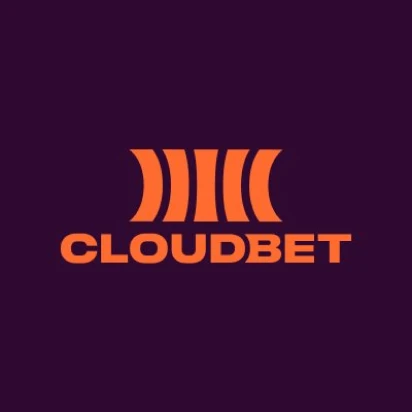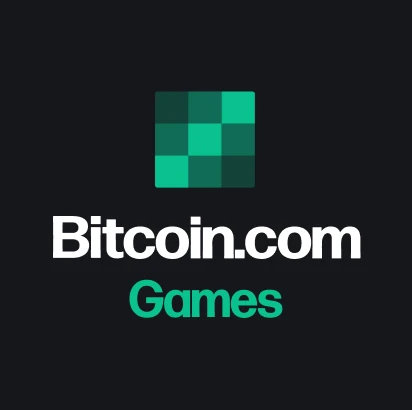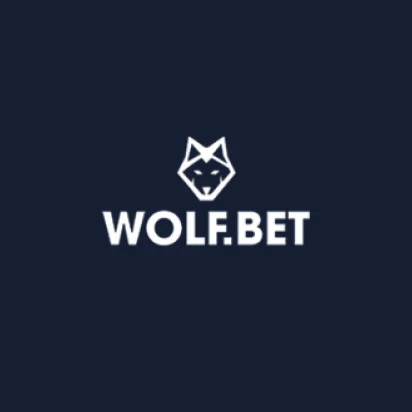4.6
- Wager Free Bonus
- Shared House Profits
- Free Faucets
- Low House Edge
- Provably Fair Games
- Shared House Profits
4.9
- Personalised bonus offer
- Provably Fair Games
- Low House Edge
- No KYC needed
- VPN friendly
- Instant withdrawal
4.2
- Free Faucets
- Anonymous Gambling
- Provably Fair Games
- Popular casino
- Sportsbook with eSports
- Some of the best odds
- Easy registration
- Provably Fair Games
- Cash Prizes with Sweepstakes Play
Ranked: Our Decentralized Gambling Site Picks
- Betfury – Best for Free Faucets on Decentralized Casinos
- Earnbet – Best for Playing a Decentralized Casino on a dApp
- BC.Game – Best for Multiple Deposit Methods
- Metaspins – Best for a Unique UX Casino Design
- LTC Casino – Best for a Low Deposit Threshold
- Bspin – Best for a Great Welcome Bonus Package
- Cloudbet – Best of Decentralized Casino Bonuses
- Bitcoin.com – Best for Depositing BTC and BCH
- Wolf.bet – Best for Accessing High-Quality Providers
Decentralized Casinos Sites Reviewed
1. Betfury – Best for Free Faucets on Decentralized Casinos

Betfury ranks first in our list of decentralized casinos as it offers freebies from its faucet, which reset every 20 minutes, and it’s a great way to keep players happy in the casino. There is, however, no welcome bonus, and the only rewards available are 100 free spins or 25% cashback on your spending. On Betfury, you can only gamble using cryptocurrencies, so fiat deposits are not possible, and you can deposit tokens like BTC, TRX, or SOL. The casino has 1000+ games, and KYC is required if you deposit more than 2000 USDT. For withdrawals, the casino supports a processing fee; however, the casino has a great reputation with high-level security for its players.
| Crypto Bonus | Wagering Requirements | Minimum Deposit | Available Currencies |
|---|---|---|---|
| Up to 1000 Free Spins & $3500 | 30x | 0.00015 BTC | 55 Cryptos |
- Pros
- Casino faucet
- Operated since 2019
- Cons
- KYC required
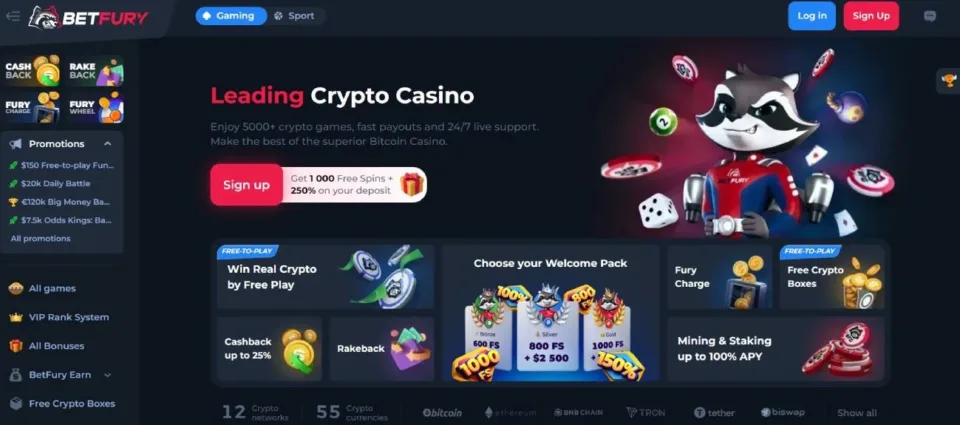
2. Earnbet – Best for Playing a Decentralized Casino on a dApp
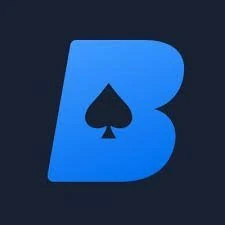
Earnbet is a dApp-style casino that operates on-chain and offers a welcome bonus of $50 that’s paid in BTC. The platform also has a lower house edge than most casinos and offers players the possibility to generate passive income through their BET native tokens. This means that 100% of house profits are paid out to the user; however, the casino only has a limited number of games from unknown providers. There are only 6 games available, and that doesn’t include slots, just table games and crypto games. The house edge is at 1.5%, and the great part of that is that it offers instant deposits and withdrawals with 24/7 live support and email support.
| Crypto Bonus | Wagering Requirements | Minimum Deposit | Avilable Currencies |
|---|---|---|---|
| $50 in BTC | 50x | $10 | 14+ cryptos |
- Pros
- dApp focused
- Low house edge
- Shared profits on BET
- Cons
- $50 welcome bonus
- 6 games available
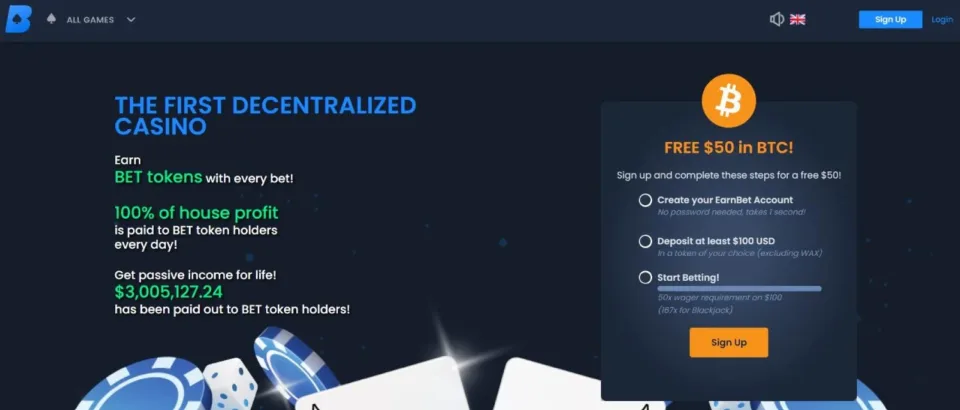
3. BC.Game – Best for Multiple Deposit Methods
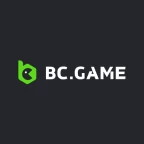
BC.Game is a widely known casino with a great reputation among most decentralized casinos; however, it does hold a form of a license which makes it even more trustworthy. Deposits and withdrawals are instantly, and there is a welcome bonus structure where you get up to 1260% in bonuses over four deposits with no wagering requirement on the player’s part. The casino supports over 66 tokens without any fees for withdrawals or deposits and hosts over 10,000 games from 58 providers, including live casino, slots, and crypto games developed by BGaming. There’s great customer support from the platform and BC.GAME has generated a lot of noise in the industry as one of the leading casino platforms, as it sponsored the Argentina Football Team during the FIFA World Cup and beyond.
| Crypto Bonus | Wagering Requirements | Minimum Deposit | Available Currencies |
|---|---|---|---|
| 270% up to 20,000BCD | N/A | $10 | 66 Cryptos |
- Pros
- High welcome bonus
- 58 providers
- 24/7 support
- Cons
- Welcome bonus in platform tokens
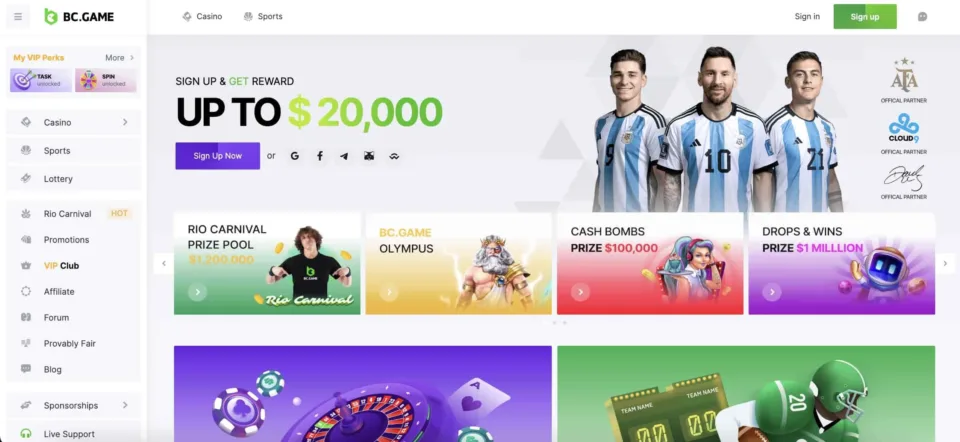
4. Metaspins – Best for a Unique UX Casino Design
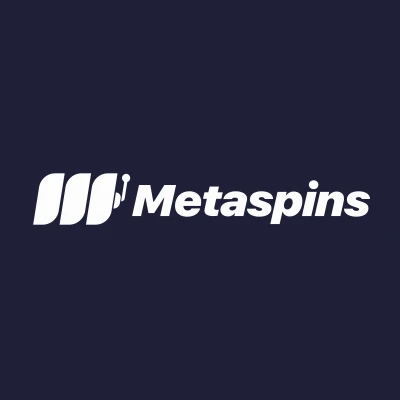
Metaspins is a great contender for decentralized casinos as the platform has a high RTP and offers a rakeback of up to 60%, which is more than other platforms. There’s also a 100% up to 1 BTC bonus for new players, and the casino has a great reputation for its fast withdrawals and great UX. Nonetheless, you do have to undergo KYC in this case when you sign up, so; unfortunately, anonymous gambling is not possible on the platform. The casino hosts over 4000 games that include slots, crypto games, live tables, and even provably fair games that make the platform complete. For a decentralized casino, there is no cap on withdrawals, and minimum deposits start at 10 TRX – meaning it’s low. As the casino is licensed, it offers great customer support via live chat and not only.
| Crypto Bonus | Wagering Requirements | Minimum Deposit | Available Currencies |
|---|---|---|---|
| 100% up to 1 BTC | 25x | 0.0001 BTC | 8 cryptos |
- Pros
- 1 BTC welcome bonus
- Low minimum deposit limit
- Cons
- KYC Required
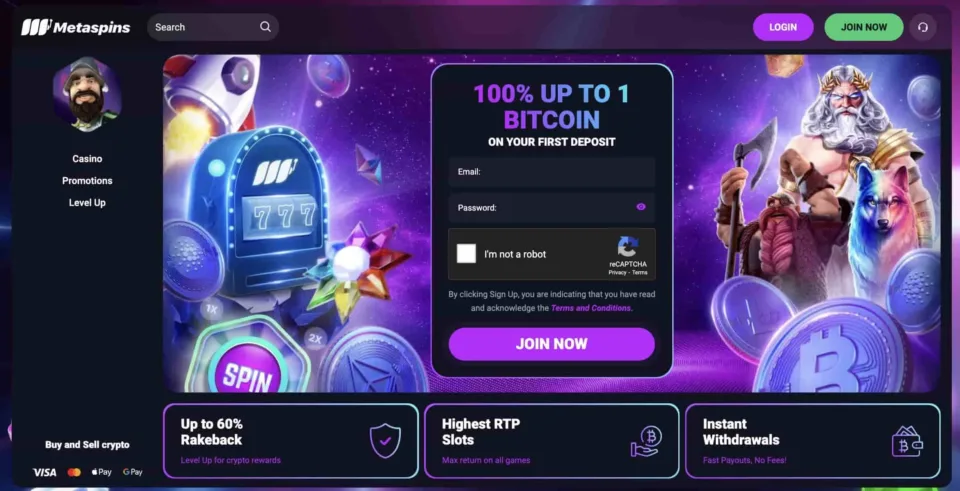
5. LTC Casino – Best for a Low Deposit Threshold
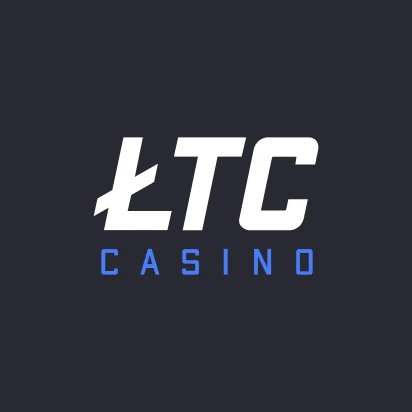
We rank LTC Casino in the 5th spot because even though the platform accepts LTC, it also accepts other cryptocurrencies. As a decentralized casino, LTC Casino offers over 2000 games with blockchain games available in a separate section of 60. Other than that, the casino has live gambling, slots, bonus buys, or jackpots, and winning can be withdrawn instantly. There are six tokens available to deposit, such as BTC, ETH, LTC, USDT, XRP, and DOGE, and the platform has an imposed withdrawal limit of 1 BTC per day or the equivalent of other tokens. What’s more is that minimum deposits are low and start at 0.187 USDT or 1mETH, and fortunately, you can gamble anonymously on LTC Casino since the platform doesn’t require KYC as there is no license available.
| Crypto Bonus | Wagreing Requirements | Minimum Deposit | Available Currencies |
|---|---|---|---|
| N/A | N/A | 1 mETH | BTC, ETH, LTC, USDT, XRP, and DOGE |
- Pros
- Anonymous gambling
- Low deposit
- Cons
- No welcome bonus
- Withdrawal limit
- Unable to show the casino is safe
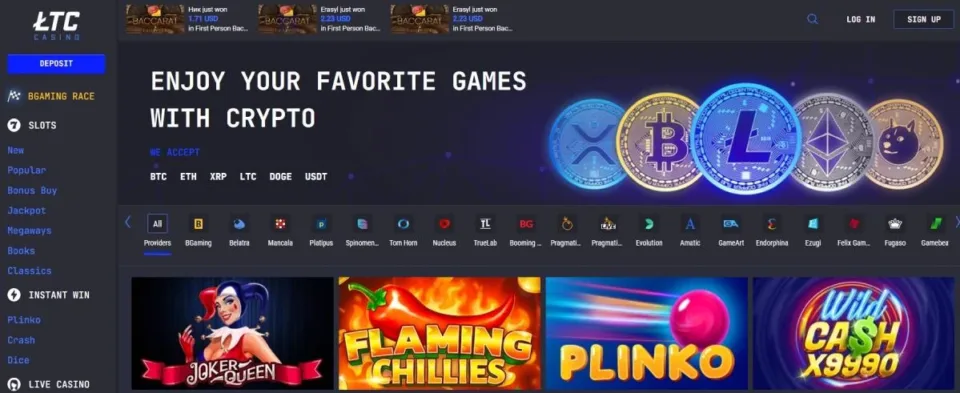
6. Bspin – Best for a Great Welcome Bonus Package
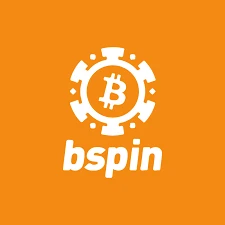
Bspin is your typical decentralized casino with a casino faucet, is available to everyone regardless of the geolocation, and offers weekly cashback. The casino also has an attractive bonus of a decentralized platform of up to 3 BTC + 60 free spins, and their other pomo hook is a 20% cashback. The only available cryptocurrency is BTC, and you can deposit instantly. The minimum amount is 0.0001; however, a withdrawal limit is connected to their loyalty rank, and withdrawals can take up to 2 working days to finalize. Still, the casino has had a Curacao license since 2018 and hosts around 700 games, but no live tables are available to gamble. Nonetheless, anonymous gambling is possible as no KYC is imposed on BTC withdrawals. The only quick customer support is on social media, as other formal support means are forms submission and email.
| Crypto Bonus | Wagering Requirements | Minimum Deposit | Available Currencies |
|---|---|---|---|
| Up to 3 BTC + 60 free spins | 35x | 0.0001 BTC | BTC |
- Pros
- No KYC
- Large welcome bonus
- Licensed casino
- Cons
- Withdrawal limit
- Two day withdrawals
- No live support
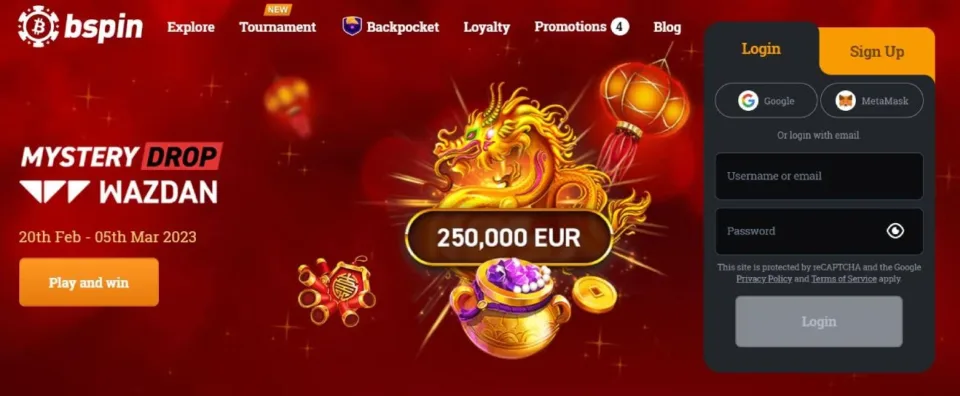
7. Cloudbet – Best of Decentralized Casino Bonuses
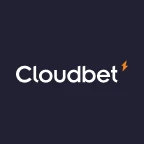
Cloudbet is among the highest-ranked casinos in the crypto space, with a great welcome offer of up to 5 BTC without any wagering requirements on the user end while also offering top games and eSports betting.
The other side of the casino is that it offers a great VIP loyalty program and weekly prizes for gamblers. In addition, it has a list of over 3000+ games, including slots, table games, and sports betting, and even shows the RTP for each game, which helps the casino gain more trust. As the casino has been in the business since 2013, it has a great reputation, offers fast crypto withdrawals and deposits, and accepts fiat. As a licensed casino, Cloudbet requires players to undergo a KYC process. Still, it compensates with great customer support where you can reach the platform via 24/7 chat, FAQ section, or email submission.
| Crypto Bonus | Wagering Requirements | Minimum Deposit | Available Currencies |
|---|---|---|---|
| 100% up to 5 BTC | No wagering requirements | 0.001 BTC | 30+ cryptos |
- Pros
- Sportsbook
- High deposit bonus
- Lots of crypto deposits
- Cons
- KYC required
- Withdrawal limits
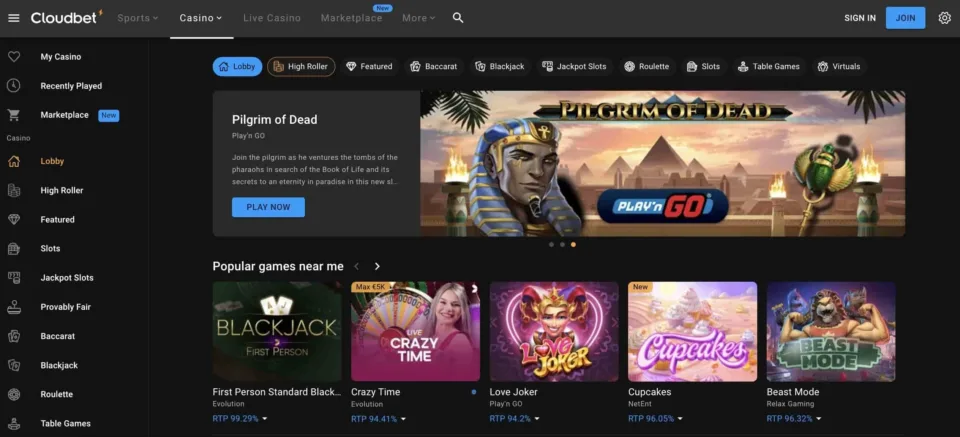
8. Bitcoin.com – Best for Depositing BTC and BCH

Bitcoin.com is our 8th pick of a decentralized platform as you can register without any hassle, and it offers wager-free bonuses while also having low transaction fees. The only welcome bonus available is a 20% cashback up to $1000, while VIPs get $5000. The casino only accepts BTC and BCH deposits with instant withdrawals and deposits. The minimum withdrawal and deposit amount is 0.0001 BTC, and you can also purchase BTC using traditional payments. There are over 1000 games available, including blackjack, roulette, or keno, among other table games, with provably fair gaming available on specific games. The casino doesn’t have a license, so anonymous gambling is possible since there’s no verification KYC required and the only contact method is email submission.
| Crypto Bonus | Wagering Requirements | Minimum Deposit | Available Currencies |
|---|---|---|---|
| N/A | N/A | 0.0001 BTC | BTC, BCH |
- Pros
- Anonymous gambling
- Low deposit
- Instant withdrawals
- Cons
- No welcome bonus
- No license
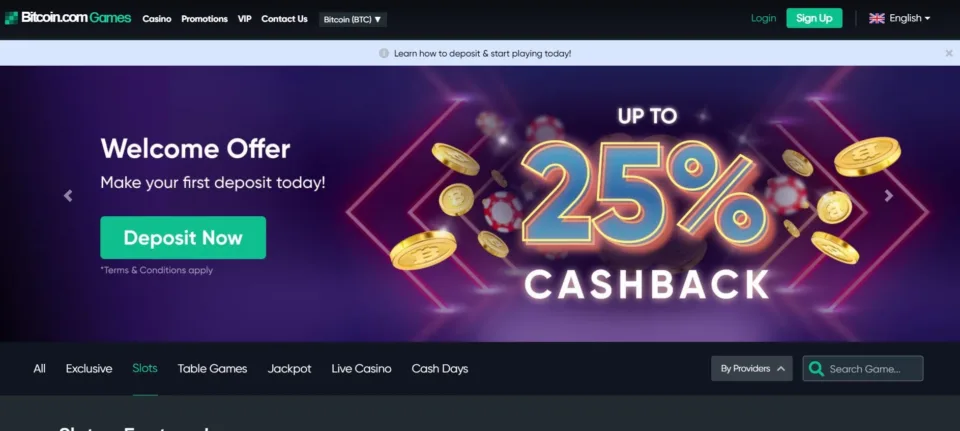
9. Wolf.bet – Best for Accessing High-Quality Providers
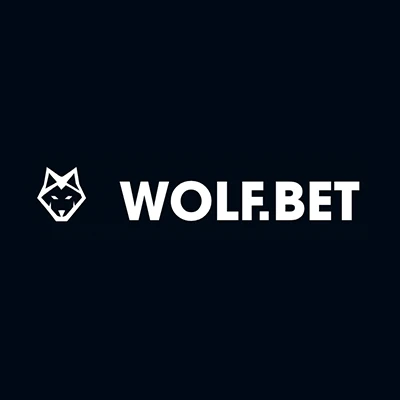
Wolf.bet is a shared gambling platform that offers free faucets, and has the option of a sportsbook while also introducing provably fair games into the mix. There isn’t a welcome bonus for crypto players, just a faucet system, and players can also obtain bonuses from the casino’s Telegram and Twitter channels. Known cryptocurrencies, including BTC, TRON, USDT, or ETH, are accepted, and there is no minimum deposit required nor a withdrawal limit imposed on players. Wolf.bet bolsters 2500 games on the platform from known providers like Pragmatic Play and Play ‘N’ Go, but they don’t offer provably fair gaming! As the casino is licensed, the possibility of anonymous gambling is not possible as the platform requires KYC to be completed. That increases the security level of the casino as the platform offers 24/7 live chat and player chat.
| Crypto Bonus | Wagering Requirements | Minimum Deposit | Available Currencies |
|---|---|---|---|
| N/A | N/A | 0.0001 BTC | BTC, TRON, USDT, or ETH |
- Pros
- Great game selection
- Sportsbook
- Faucet system
- Cons
- No provably fair
- No welcome bonus
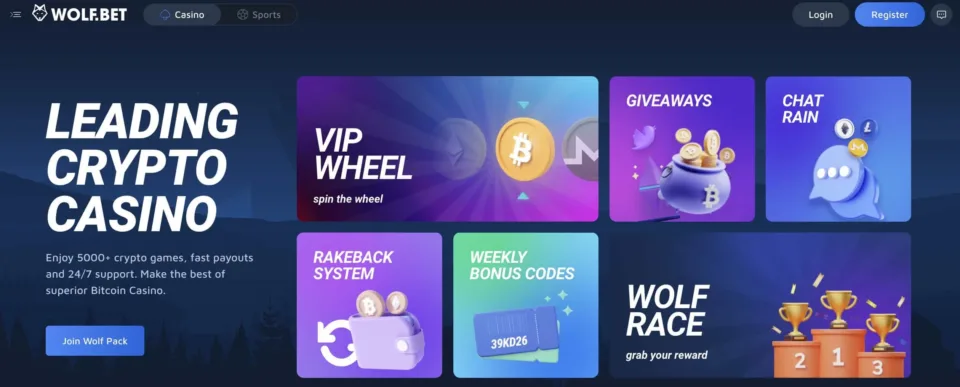
What are Blockchain Casinos?
You may have already heard about blockchain casinos. They have gone by other names such as Bitcoin casinos, dApps, etc. however if you are relatively unfamiliar with blockchain casinos, this post is for you.
Online users commonly use “Bitcoin casinos” and “blockchain casinos” interchangeably, unknowing that it is a complete misinterpretation of the concept. Although it is difficult to identify the main differences between the two types of casinos, you can learn a few tips to do so with ease.
To help enlighten you, let’s assume that you signed up with a Bitcoin-accepting online casino. Any casino, including the one you signed up with, is automatically referred to as a “Bitcoin casino” if it accepts Bitcoin as a payment or deposit.
This is due in part to the fact that if a casino is using Bitcoin, then it is allowing the use of blockchain technology for the transfer of assets on its platform. However, blockchain casinos also function as blockchain gambling hubs due to the fact that they operate with blockchain technology at their core. Hence, every process that takes place is based on the principle of blockchain protocol.
What are Decentralized Casinos?
Decentralized structure and functionality characterize the dApps gambling industry. Do not confuse the decentralized casinos for normal online casinos that accept cryptocurrencies. Decentralized casinos run primarily on blockchain networks, therefore, they offer greater benefits compared to traditional online casinos.
You will also find a ton of games on decentralized casinos, including slots, craps, blackjack, roulette, and so on. Most gamblers and punters interested in blockchain gambling also try horse racing and sports gambling products as well.
Some of the leading platforms for decentralized casinos include Ethereum, EOS, and TRON, all of which set to rise in popularity.
What is DeFi Gambling?
Education about DeFi and the cryptocurrency sector, in general, is still low among the masses. Developers focus on coding and put almost zero effort into teaching ordinary investors about their products.
DeFi’s primary goal is to bring financial services to everyone without restrictions. Banking is a core part of it, as it even seeks to replace traditional banking. Users own DeFi accounts that serve all banking functions like conventional bank accounts. The difference is that DeFi accounts can be opened in minutes and anonymously. They are also non-regulated and give the user up to 100% control of funds. DeFi users can save, invest, and take loans just like traditional banking. The difference; DeFi is decentralized, fast, and more efficient.
Blockchain-built applications (dApps) such as Compound and DAO connect lenders and borrowers peer-to-peer. This means that anyone can lend and earn interest or borrow. The products available are way superior to the standard saving accounts when it comes to saving. DeFi users earn high interest in their saving accounts since no third parties and monopolies exploit them. Gambling utilizes DeFi just like casinos have bank accounts. Therefore gambling is the tip of the horn in DeFi. Of course, there are numerous unique DeFi-built gaming and gambling products, but they still make a drop in the ocean of the entire decentralized finance industry.
Types of DeFi Gambling
As already mentioned, DeFi is wide. There are different types of gambling in it, ranging from crypto casinos, sports betting and poker to new and unique gambling products like yield farms.
DeFi Sports Betting
DeFi sports betting is facilitated by blockchain technology. It employs intelligent contracts to eliminate third-party bookmakers. Bettors lock in their wagers, and the intelligent contracts automatically validate results and pay the winner. Players connect a Web3 wallet to the betting platform to fund their accounts before placing bets. Winnings are automatically sent back to the gambler’s Web3 wallet. Dexsport.io and LunaFi.io are perfect examples of gambling platforms for DeFi sports betting. With LunaFi, anyone can become the house.
DeFi Poker
You’ll never go back to classic poker once you interact with DeFi gambling dApps. The former is always tagged with a huge house edge and unattractive return to player percentages. Decentralized poker wins because it takes away power from the house by distributing profits fairly among key participants. Platforms like Coinpoker give players a 15% profit share directly and distribute additional amounts through bonuses and promos. There is also increased transparency and privacy with this kind of gambling.
DeFi Slots
DeFi slots allow players to participate in profit sharing of the house. Gamblers purchase NFTs representing ownership, and these grant them automatic rights to earn passive income whenever the casino distributes profits. Players can re-invest these profits, stake them or channel the funds towards liquidity pools to make more profits.
Yield Farms
Yield farming is a method of maximizing crypto gains in DeFi. There’s stable and degen yield farming. Stable yield farming is more of an investment with calculated risks and low returns. Degen yield farming, on the other hand, is pure gambling, a zero-sum game where you either win big or nuke your funds. They start as hyped-up projects paying investors as high as 3% per hour and end up attracting massive funds. Normally investors put their money in the platform’s native token, whose prices rapidly rise. Early investors can rake in 100x within days to weeks and start selling their tokens to cash in profits. This causes prices to stop moving up. A panic wave hits the later investors, causing them to sell all their tokens and eventually, the price goes to almost zero. The word “degen” comes from degenerates, and that’s because these products are like a rising hot air balloon. They must burst at a high altitude. Degen products hardly have a real project backing them. They thrive on hype and operate as pump and dump. This is the riskiest form of DeFi crypto gambling.
How DeFi Will Change Gambling?
The introduction of blockchain into gambling is a sure bet for transparency. This is a step ahead in creating a safe and trustless betting industry. Decentralization dethrones greedy operators by introducing fair profit sharing for all. But the biggest impact of DeFi to gambling will be improved user experience and new innovations. DeFi is constantly evolving, and programmers are finding new methods to incorporate additional benefits for players to maximize their returns. For example, BetDemand gives out rewards to winning sports bettors without anyone losing. Gamblers whose bets turned out wrongly get a refund of their money with staking interest. So, in the end, everyone is a winner.
Chipz, an Ethereum-based platform, is another innovative DeFi product riding on blockchain technology to give bettors a unique gambling experience. It offers them a one-stop platform to bet on any random occurrence, including sports, politics, and entertainment. Users can also become bookmakers by creating their own sport and allowing bettors to participate and earn staking fees. All of these are possible through the power of smart contracts, and there are no third parties or regulatory authorities involved.
Difference Between Centralized & Decentralized Applications
Centralized app developers can have more control over their creations than dApp makers. Many centralized apps are well-equipped to support more traffic than their decentralized counterparts.
It’s also much easier for users to update centralized apps as new developer patches or upgrades are automatically sent out to devices. However, centralization does lead to issues if there’s a problem, as every user will suffer until the issue is resolved.
While it’s easy to keep track of a central server, developers need to practice good security measures and invest in strong cybersecurity tools as a hacker or criminal who gains access to a centralized app server can cause immense issues.
Decentralized Applications
dApp users do not have to worry if a server goes down or runs into trouble as there’s no single point of failure.
Hacking attempts are also not an issue as user data is not centralized in a single repository. The flexibility, security, and open-source nature of dApps are some of the reasons why many continue to flock to decentralized apps.
However, developers need to understand that crypto and blockchain are still relatively niche industries, which means potential marketing opportunities and user expansion might be limited.
Additionally, many dApp transactions are still costlier and slower than centralized ones, which could hinder adoption.
The lack of centralization also makes fixing issues and issuing updates tricky as users need to stay involved and install updates on their own accord.
How We Review Blockchain Casinos?
When it comes to reviewing blockchain casinos, we take into account a few different factors that help us assess the quality of the offerings. Specifically, we focus on transparency, technology, and value when assessing each casino site.
Transparency
When we review blockchain casinos, one of the key requirements is that they are open and transparent about their operations. This includes providing clear information about their games, terms & conditions, as well as customer service policies.
Technology
In addition to being transparent, we also evaluate the technology behind each casino site. We review the user interface and experience of playing at the site to ensure it is easy to use and enjoyable for players. We also look at any software tools used by the casino such as random number generators or provably fair systems to determine if they’re secure and reliable.
Value
Lastly, we consider what kind of value a given casino offers its users. This includes evaluating things like bonuses and promotions offered by each site to determine how good a deal they actually are for players. Additionally, we assess how quickly withdrawals are processed as well as other features such as loyalty programs that may add additional value for loyal players.
Advantages of Decentralized Casinos
There are countless advantages of decentralized casinos. As stated earlier, the benefits of blockchain gambling will be realized in decentralized casinos because such casinos are primarily powered by blockchain networks.
We have compiled a few of the major benefits of decentralized casinos in order to clarify and help you understand why you should transition from traditional online casinos. Keep reading to learn about the valuable advantages of decentralized casinos:
Increased Privacy
You don’t necessarily have to fulfil the KYC requirements at decentralized casinos, most of the dApps casinos let you gamble freely and anonymously.
The major reason behind that involves end-to-end encryption due to the fact that blockchain transactions have to be verified and logged securely. Therefore, you don’t have to worry about exposing your identity to the government and banks.
With decentralized casinos, you can play from anywhere in the world (preferably from somewhere where online crypto gambling is allowed and legal) while being anonymous. You can choose avatars and nicknames that suit your profile and have fun!
Instant Withdrawals
Normal online casinos have lengthy waiting periods before completing withdrawals, but with cryptocurrencies, you can enjoy near-instant or same-day withdrawals!
Traditional online casinos require users to wait longer than necessary due to the nature of the banking transactions that take a considerable amount of time to log, register, and process transfer requests.
Then, the overall transfer procedure involves passing countless checks and criteria causing people who use bank wire transfers to experience a serious delay in their activities.
This mainly affects gamblers who love depositing and withdrawing at a moment’s notice. Since online gambling is about fun and earning rewards, it makes sense to offer instant withdrawal services. While that is not available with traditional casinos, you can benefit from it with decentralized ones.
Decentralized casinos involve blockchain transactions and crypto coin transfers that occur in a virtual environment, which makes transferring the coin ownership efficient.
You can easily copy-paste the address of your preferred crypto wallet to the decentralized casino and proceed with instant withdrawals. In the worst-case scenario, the withdrawal will take a few hours, but it is nearly always completed on the same day.
Crypto Coin Acceptability
In decentralized casinos, crypto coins are the standard payment option, therefore, most of them will support major crypto coins such as Dogecoin, Litecoin, Bitcoin, Tronix, and Ethereum.
Considering that crypto coins are the blood flow of decentralized casinos, it is important to have various options at hand. For example, you can not imagine an online ecommerce store offering retail services around the world but accepting only one form of payment. It would be damaging to the image and overall objective of the ecommerce store while affecting the needs and requirements of consumers.
The same applies to crypto casinos for blockchain gambling in a decentralized structure.
Decentralized casinos come in varieties, therefore, you will seldom find a decentralized casino that accepts only one cryptocurrency as a form of payment. Most decentralized casinos let you deposit and withdraw funds via a range of top cryptocurrencies.
Some of the cryptocurrencies allowed on decentralized casinos include:
- Bitcoin
- Ethereum
- Ripple
- Monero
- Solana
- Dogecoin
- Litecoin
- XRP
- Tether
- Polkadot
Fair Games Provability
Players will no longer be at the mercy of the house in terms of fair play. They can use special keys and instructions to view the results of nearly all fair games to make sure there is zero cheating or fraud.
By avoiding fraud and cheating risks, you can gamble under even better circumstances. Decentralized casinos allow all users to view the backend processes which are safe and secure so that hackers and scammers will not have a high success rate.
When you are gambling on decentralized casinos, you will have full access to view all processes, allowing you to learn how the outcomes were calculated. Hence, it will make you feel confident and may encourage you to pursue this form of entertainment, resulting in more rewards.
Fair play is a common guideline for land-based and online casinos, however, fair play is usually just a lip-service since many casinos wish for the house to win. With decentralized casinos, you can rely on fair play guidelines and processes.
Anonymous Gambling
Online gambling is not legal in every country. Some banks do not yet endorse online gambling, especially those that involve traditional processes. However, the use of decentralized casinos hides the transaction details and maintains the anonymity of gamblers.
Punters/players around the world can freely gamble with as many funds as they wish since Bitcoin transactions are anonymous. Plus, the decentralized nature of blockchain yields the absence of a central authority, additionally players do not have to wait for a bank’s approval to make transfers.
Security & Transparency
The rise of cryptocurrencies has raised the bar for security and safety in the online gambling world. This is clearly indicated in the operational structure of decentralized casinos in how they are safe from nearly all major hacking attacks.
In a traditional online casino, a hacking attack on the main server of the organization will cause a total breakdown of gambling products and services. This could lead to temporary downtime and even closure since gamblers would considerably.
But, that’s not the case with decentralized casinos. Due to the decentralized structure, a hacking attack on any server would not result in a complete shutdown. Rather, it would only cause the affected server to crash, leading to minimal disturbance and better chances of recovery.
When on decentralized casinos, players do not have to keep inserting banking information such as credit/debit card details. This saves the gamblers from major security risks involving their bank accounts.
Return to Player Values at Blockchain Casinos
Whether it is online casinos or land-based casinos, the house always wins, or, in most cases, the house always has the upper hand! Nearly all punters/players have to give up a certain proportion of their winnings to pay the house, as per the house-edge rules.
This process is prevalent across traditional online and land-based casinos. In simpler terms, the “house” can be unfair and seamlessly vague. However, decentralized casinos lower the operating costs for online casinos, thereby allowing the house-edge rates to be extremely low.
That leads to players paying a small amount back to the house and getting the highest payout rates in the overall gambling industry through dApps.
Types of Decentralized Gambling Sites
Crypto Lotteries
Crypto lotteries use blockchain technology to produce an immutable and secure system for players. The lottery is normally a provably fair system with no centralized server, reducing the chance of fraud or manipulation. Additionally, crypto lotteries often come with lower costs due to the platform’s decentralization.
Decentralized Dice Games
Decentralized dice games are similar to old-school games; however, they use blockchain technology, allowing them to be provably fair and securely hosted on the blockchain. These games also have lower costs due to the lack of centralization.
Poker Sites
Poker sites are becoming increasingly popular in decentralized gambling sites due to the level of transparency that blockchain technology provides. As a result, players can depend on the fairness and integrity of these sites as there is no central server for manipulation or fraud. Additionally, these sites come with lower fees and quicker payouts than other online poker players.
Crypto Casinos
Crypto casinos utilize blockchain technology to provide users with a secure online casino experience that cannot be compromised by malicious actors or external factors. Players can enjoy a variety of slot machines and table games with real money wagers while also having peace of mind knowing their cryptocurrency transactions are secured by the power of encryption within the blockchain network they’re using.
Sports Betting
Sports betting is another form of decentralized gambling site becoming increasingly popular amongst cryptocurrency users. This type of sports betting site uses smart contracts that allow users to bet on any sporting event securely without needing to trust a third party.
How to Select the Best Casino Site?
Safe & Secure Crypto Transactions
When selecting the best casino site, one should always consider whether the site provides safe and secure crypto transactions. This is especially important when dealing with large amounts of money, as it can be difficult to recover lost funds if a transaction fails or is compromised. It is also important to ensure that the casino has adequate security measures to protect its players from hackers.
Instant Deposits & Withdrawals
Another key factor to consider when selecting a casino site is the speed of deposits and withdrawals. Some sites offer fast deposits but slow withdrawals, while others offer both instantly. Selecting a site that offers reliable deposits and withdrawals for fast access to your winnings and hassle-free gaming experiences is essential.
Bonuses & Promotions
Most crypto casinos will offer bonuses and promotions designed to reward loyal players or provide new players with additional incentives. However, it’s worth researching these bonuses carefully as some may come with restrictions on withdrawal limits or other stipulations that could affect your gaming experience.
Low Crypto Transactions Fees
The fees associated with making cryptocurrency transactions can vary from site to site, so you must check these out before signing up for any service. A good casino offers low transaction costs, ensuring you get value for money with each deposit or withdrawal you make.
Wide Range of Crypto Games Betting Markets
Many crypto casinos have many games available; however, some may specialize in certain markets, such as sports betting or live casino games. Therefore, when selecting a platform, it’s worth checking what type of markets they have available so you know what games you can expect to find there.
Fair Deposit & Withdrawal Limits
Finally, always check out the deposit and withdrawal limits associated with each casino before signing up, as this will indicate how much money you can bet at any given time. Before committing to playing at any particular site, you should ensure that these limits are fair and reasonable for your financial circumstances.
Types of Bonuses, Casino Offers, & Promotions
Free Chips & Bets
Free chips and bets are one of the most popular types of bonus offers found in online casinos. These bonuses provide users with a certain amount of free coins or virtual currency to be used on any game offered on the platform. Unfortunately, these offers usually have a wagering requirement to complete before players can withdraw their winnings.
No Deposit Bonuses
No deposit bonuses are an attractive type of bonus offer where players don’t need to deposit money to receive a bonus. This is an excellent way for gamers to test out the games available without risking any of their own funds. Additionally, many sites offer no deposit bonuses on specific games or events, so keep an eye out for those.
Welcome Match Bonus Deposits
Welcome match bonus deposits are another popular type of casino promotion where new players will have their first few deposits matched up to a certain amount by the site. These offers can significantly increase your chances of winning big, as you’ll have extra cash in your account from the beginning.
Cashback Bonus
Cashback bonuses are rewards given to regular players, often monthly or weekly, depending on the site’s rules and regulations. With this kind of incentive, you can get back some of your lost bets in addition to other rewards, such as free spins or tournament entries.
Poker Chips
Poker chips are special tokens purchased from poker rooms that act as virtual money when playing at tables without real-money buy-ins. Most poker rooms will provide regular players with these chips if they prove themselves trustworthy over time, allowing them to participate in high-stakes tournaments without risking their own money.
Normal Online Casinos vs. Decentralized Casinos
It would be incorrect to assume that decentralized casinos (or dApps) are polar opposites of traditional online casinos. In fact, both types of casinos offer nearly the same gambling products. But still, many of the processes that take place, including the fund transfer and other procedures, are entirely different.
That’s mainly due to the presence of blockchain technology at the core decentralized casinos. In fact, you can refer to the benefits of decentralized casinos mentioned earlier in the post. Most of the benefits that you will find through dApps gambling are not present in traditional online casinos.
The presence of blockchain technology ties up all the major loopholes in traditional online casinos, however, when it comes to a consistent and loyal audience, traditional online casinos win. That’s because cryptocurrencies are very volatile, and that tends to put off most gamblers and punters.
Overall though, despite the minor cons and current challenges, dApps gambling networks have immense potential for taking over the online gambling industry.
Potential for Disruption
The potential for disruption in the online gambling market in terms of blockchain technology is huge. Although many people stick with traditional online gambling websites and methods, the blockchain and crypto gambling trend is slowly emerging as dominante.
Besides, one can not ignore the advantages that blockchain casinos have over traditional online casino websites. However, if you are worried about any disruption while gambling on a blockchain casino, you should know that the chances of that happening are slim to none.
Start Playing
Up until now, we have covered the major benefits and intricate qualities of the blockchain gambling networks and decentralized applications for gambling, or dApps. The modern blockchain movement and the rise of blockchain casinos are a huge threat to the traditional gambling infrastructure.
As the industry grows, blockchain gambling networks face immense diversity as developers favor some networks over others. Read on to find out more!
Decentralized Casinos Ethereum
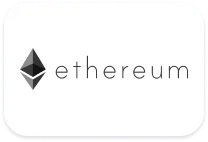
Despite the rise in different forms of blockchain networks and the widespread diversity, Ethereum-based blockchain gambling networks remain the most significant. A huge portion of the active and successful dApps exists across the wide Ethereum network.
Developers have been favoring Ethereum for dApp development due to several factors that include the availability of development tools, sufficient documentation, and large communities on the Ethereum blockchain.
Those factors result in cost-effective and efficient dApp development. Also, due to the congestion on the Ethereum blockchain as active users rise regularly, developers are shifting their attention to networks like EOSIO and TRON.
Decentralized Casinos TRON
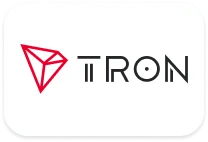
Consider the TRON network as the Las Vegas of the blockchain gambling world. The major reason for that title is the popularity and rapid growth of that network.
There have been dozens of TRON gambling network projects in the last couple of years, including WINk, RocketGame, and 888TRON. It’s worth mentioning that the TRON dApps account for a massive proportion of the active daily users on the network.
Decentralized Casinos EOS
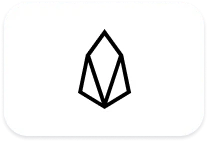
You will find many EOSIO decentralized applications that involve gambling. In fact, the total spending on the EOSIO decentralized gambling applications was around $4 million per day in 2020. Many platforms then became popular and remained at the top of the range (including DICE, where players earned branded DICE tokens for playing games).
There are countless benefits of gambling on websites/platforms powered by the EOSIO blockchain. However, the boundless opportunities with EOSIO and TRON blockchain are still untapped. With that said, many new blockchain technology-featured networks continue to emerge in the market.
Ethereum has become the most popular platform internationally for building decentralized applications. Within all sectors, the majority of the decentralized casinos for blockchain gambling have developed on the Ethereum network.
Developers continue to leverage the blockchain networks’ features (such as the open-source attribute) to develop smart contracts and the most efficient dApps for online gambling.
Are Licensed Blockchain Casinos Better?
It’s always a priority to find a licensed casino. Whether you are new or experienced in the blockchain gambling space, you must find a decentralized or blockchain casino that has an activated license. In the past, some online casinos have committed scams and carried out frauds with cryptocurrency holders.
Scam and fraud gambling casinos usually do not have authentic licenses. By opting for a licensed blockchain casino, you ensure that the platform complies with the industry standards.
In a nutshell, licensed blockchain casinos are the most suitable option for people who wish to start gambling with their cryptocurrency. It is prudent to check for the legitimacy of the blockchain casinos with whom you are planning to sign.
Licensed casinos are better because they represent verification and checks from third-parties, including the authorities in the online financial services sector.
Is Blockchain Gambling Legal?
The legality of blockchain gambling varies from one country or jurisdiction to another. In the United States, for example, most states have laws that allow online gambling with tokens and cryptocurrency as long as they are licensed and regulated. On the other hand, some countries, such as Japan, do not allow blockchain gambling due to its decentralized nature.
In the UK, all forms of online gambling – including those based on blockchain technology – must be authorized by the Gambling Commission. Similarly, in South Africa, online casinos must be approved by a competent authority such as the National Gambling Board.
It is also important to check out what kind of licenses or permits a casino platform has to ensure that it adheres to all applicable rules and regulations when offering its services. This will help you distinguish between safe and trustworthy sites and fraudulent ones that could be used for money laundering or other illegal activities.
Conclusion
Decentralized casinos are a great platform that lets you gamble anonymously and help keep the ideals of blockchain intact. However, they can be higher risk, and they don’t offer the same level of trust and quality as centralized and typical casinos out there. Making deposits and withdrawing money is extremely easy, especially when everything happens on-chain, but it’s always good to research what casino you are playing at to minimize your risks.
What Is a Blockchain Casino?
A blockchain casino is like a blockchain gambling hub. On such casino websites, blockchain technology powers the entire platform. Unlike traditional casinos, you will see that decentralized applications for gambling offer full transparency.
Are Gambling Licenses Required for Crypto Casinos?
Crypto casinos should also have a license to be more trustworthy, which will hinder anonymous gambling.
Are Licensed Blockchain Casinos Better?
No, they are not better since they might require some form of verification when trying to withdraw your money.
Facts Checked by Josip Putarek, Senior Author









